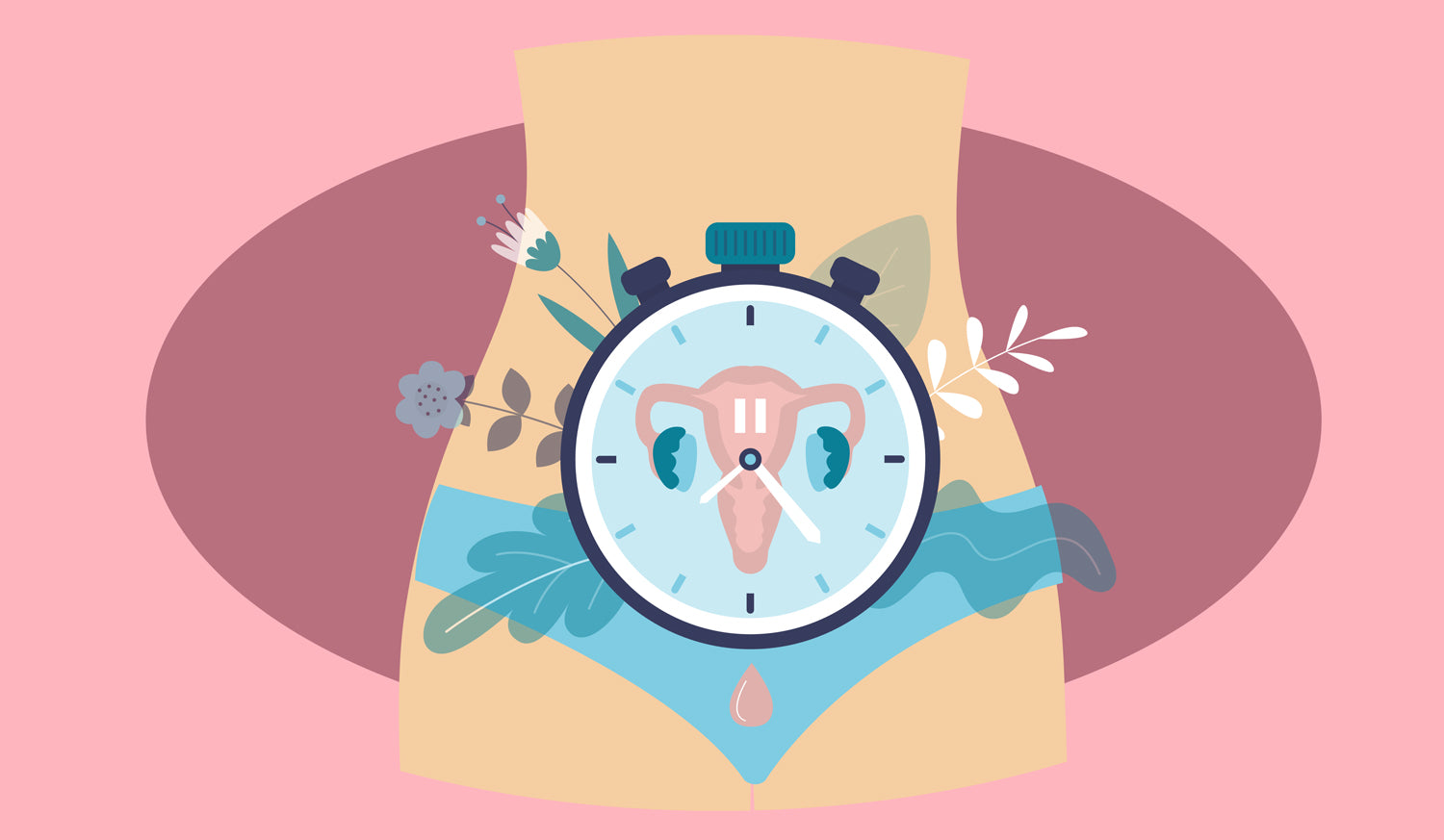Dishormonia - When the menopause beckons

It is a phase of life in which we already know very well who we are and what we want. We have made decisions, celebrated successes, made mistakes, our wrinkles tell of laughing and thoughtful moments, we have experienced a lot. We are seasoned women - and now hormones are supposed to make us sweat and deprive us of sleep! After years of discipline and (occasional/predominant/regular) steadfastness in the face of sweet temptations, the conditions are suddenly exacerbated as our muscle mass decreases. Upset and nervousness come free of charge. Thank you.
Into the change without wavering
The technical term for the menopause is climacteric. The climate crisis immediately springs to mind - the temperature rises and everything gets out of balance. Of course, this doesn't necessarily have to be the case for every woman. A third of women feel no difference at all during the menopause. Everyone else can make it easier for themselves for an average of five years - without any synthetic hormone therapy.
Valuable tips ...
... for a good night's sleep
Herbal preparations such as valerian, hops, lemon balm or passion flower gently help with sleep disorders.For a naturally balanced hormone balance
Herbal remedies such as black cohosh (Cimicifuga racemosa) and monk's pepper (Agnus castus) are a gentle way to harmonize the female hormone balance. Sheaflower also contains hormone-like substances that can balance the imbalance during the menopause. A cup of tea made from yarrow extract per day is recommended. Diet can also have a stabilizing effect. Isoflavones are secondary plant substances (phytohormones) that act like oestrogens. They are contained in soy products, for example. Alternatively or additionally (depending on taste), lignans are also a good choice. They are found in linseed, pulses, cereals, berries, pome fruit and salads. Soy is not only popular with vegetarians and vegans as a meat substitute, the bean is also interesting for women going through the menopause. It is considered a plant-based oestrogen (phytoestrogen) and is particularly helpful against hot flushes - also because of the biochanins (dietary fibres) it contains.... against hot flushes
And what to do about hot flushes and sweating? Food can "cool down" hot flushes. Salads with cucumber, tomatoes and radishes, as well as watermelon and strawberries, have a cooling effect and can be a relief for hot flushes. Sweating often occurs when blood sugar levels drop too low between meals. The essential oils in sage tea also inhibit the nerve endings of the sweat glands, which produce less sweat. During sport, the skin trains itself to sweat, so heat spurts no longer feel so unpleasant. Visits to the sauna also have the same effect.... for good digestion
If the bowels become sluggish and digestive problems arise, this may also be due to the menopause. A glass of water in the morning immediately after getting up detoxifies and aids digestion. Fiber also aids digestion, at least 30 grams a day is recommended - this is easily achieved with whole grains, nuts, seeds and vegetables. Yoghurt, quark and vegetables pickled in lactic acid such as pickled cucumber or sauerkraut also help with sluggish bowels. Better to reduce: White flour products, chocolate and bananas.
Important nutrients
A lack of vitamin B12 often occurs during the menopause. The following micronutrients are important during the menopause: vitamin B6, vitamin C, vitamin D, vitamin E, biotin, zinc and selenium.Magnesium
This mineral is used up more quickly during stress and is also sweated out during heat attacks. If you take a magnesium supplement in the evening, you can also fall asleep better. And the substance is necessary for stable bones. An adequate intake lowers the risk of osteoporosis, which rises sharply due to hormone deficiency during the menopause.Calcium and vitamin D
Around the menopause, the body's own oestrogen production decreases - and with it its essential protective function for the skeleton. For this reason, a good supply of calcium should be considered at the start of the menopause. Milk and dairy products with their high calcium content are very suitable for this. Vitamin D is at least as important for the skeleton as calcium. It ensures that calcium can be absorbed into the bones. The body can only produce vitamin D with the help of direct sunlight on the skin. However, time in the sun is usually not enough to ensure a sufficient supply; vitamin D should be obtained from food such as salmon or herring, liver, eggs and mushrooms.Of course we offer in our store a suitable selection of supplements.



